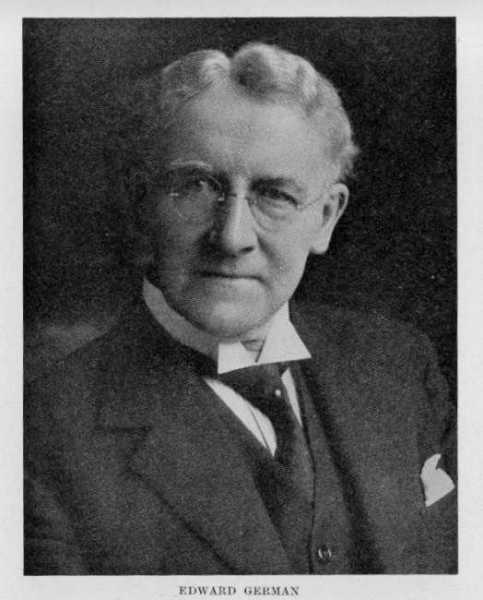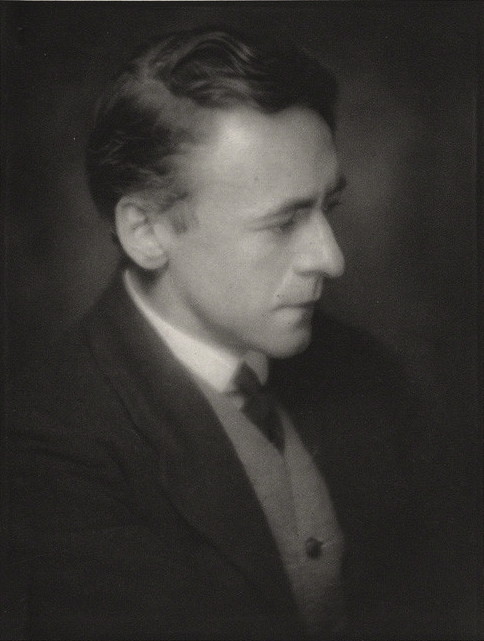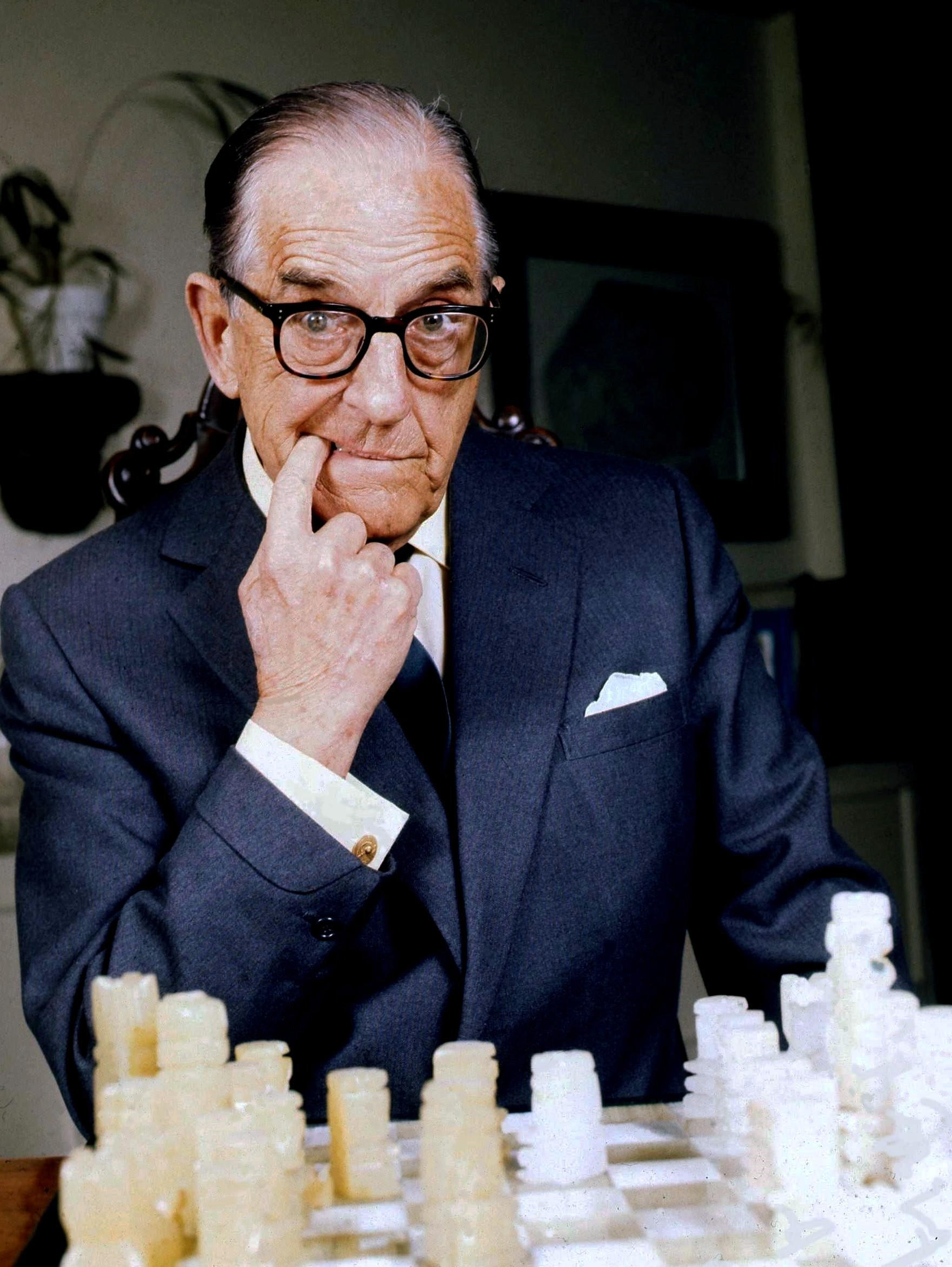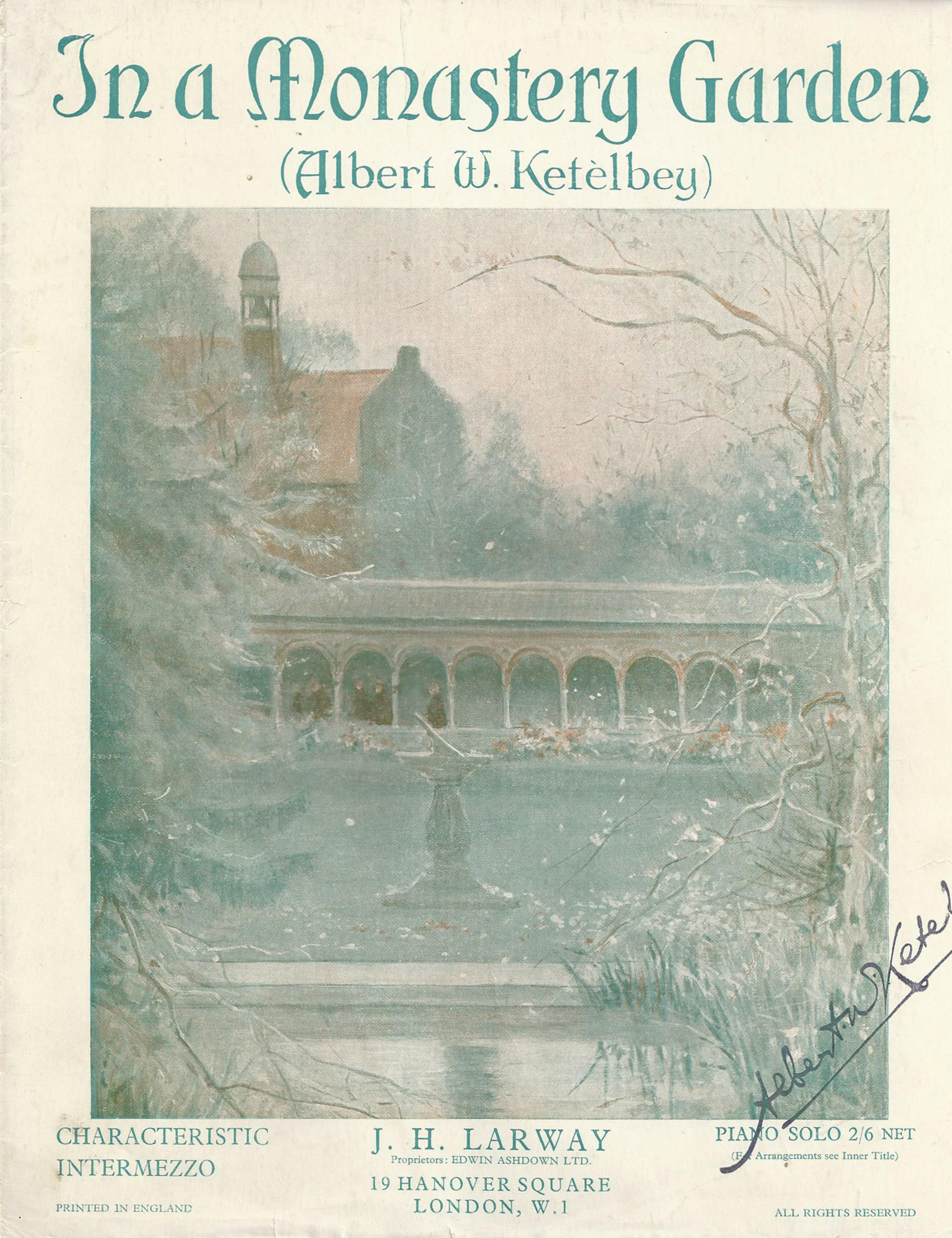|
1934 In British Music
This is a summary of 1934 in music in the United Kingdom. Events *February – Sir Edward Elgar dies and is buried next to his wife at St Wulstan's Roman Catholic Church in Little Malvern. Elgar leaves behind 130 pages of notes which Anthony Payne uses to reconstruct his unfinished Third Symphony; it would be premièred in 1998. Elgar is replaced as Master of the King's Music by Sir Walford Davies. *28 May – Opening of the first Glyndebourne Festival Opera season. *June – Sir Henry Lytton retires from the D'Oyly Carte Opera Company. Popular music * " The Bluebird Of Happiness" w. Edward Heyman & Harry Parr-Davies m. Sandor Hamati * "Home, James, and Don't Spare the Horses", by Fred Hillebrand, recorded by Jay Wilbur and later by Elsie Carlisle, with Ambrose and his Orchestra * "If (They Made Me a King)", music by Tolchard Evans and lyrics by Robert Hargreaves and Stanley J. Damerell * "I'll Follow My Secret Heart" w.m. Noël Coward, Introduced by Noël C ... [...More Info...] [...Related Items...] OR: [Wikipedia] [Google] [Baidu] |
Edward Elgar
Sir Edward William Elgar, 1st Baronet, (; 2 June 1857 – 23 February 1934) was an English composer, many of whose works have entered the British and international classical concert repertoire. Among his best-known compositions are orchestral works including the ''Enigma Variations'', the ''Pomp and Circumstance Marches'', concertos for Violin Concerto (Elgar), violin and Cello Concerto (Elgar), cello, and two symphony, symphonies. He also composed choral works, including ''The Dream of Gerontius'', chamber music and songs. He was appointed Master of the King's Musick in 1924. Although Elgar is often regarded as a typically English composer, most of his musical influences were not from England but from continental Europe. He felt himself to be an outsider, not only musically, but socially. In musical circles dominated by academics, he was a self-taught composer; in Protestant Britain, his Roman Catholicism was regarded with suspicion in some quarters; and in the class-consci ... [...More Info...] [...Related Items...] OR: [Wikipedia] [Google] [Baidu] |
Tolchard Evans
Sydney Edmund Tolchard Evans (20 September 1901 – 12 March 1978) was a British songwriter, composer, pianist and bandleader, whose works were popular from the 1920s to the 1960s. Early life He was born in West Kilburn, London, the son of Edmund George Evans and his wife Maud, née Tolchard. The family later moved to Willesden, where Evans lived for the rest of his life. Career Evans started playing piano at the age of six, and studied orchestration and conducting with a view to becoming a classical musician, but in 1919 joined the staff of the Lawrence Wright popular music publishing company. In 1924, he left to work as a pianist for silent films and dance bands, before establishing his own band at the Queen's Hotel, Westcliff-on-Sea, later moving to the Palace Hotel, Southend, where he stayed through most of the 1930s. He also achieved success as a songwriter, with his song "Barcelona" (1926) becoming an international hit. With lyricists Stanley Damerell and Robert Hargre ... [...More Info...] [...Related Items...] OR: [Wikipedia] [Google] [Baidu] |
Concertino For Harpsichord And String Orchestra (Leigh)
Concertino for Harpsichord and String Orchestra is a short harpsichord concerto written in 1934 by English composer Walter Leigh. It was premiered by the English composer and pianist Elizabeth Poston. Movements: #Allegro #Andante #Allegro vivace In the first movement, a lively dialogue between soloist and orchestra culminates in a barred cadenza for the harpsichord, followed by a repeat of the opening statement. The ''Andante'' is a arabandelike movement, in ABA form. The ten-bar theme stated by the soloist is repeated by the orchestra. In the B section, elements from the first theme are reassembled into new motives. The first theme is shared between cellos and violins on its return, with the harpsichord playing accompanying arpeggios. The last movement is in 6/8 and abounds in cross-rhythms; a number of short themes succeed each other rapidly. A short cadenza leads to a reprise incorporating themes from all three of the movements. Piano has occasionally replaced harpsichord in ... [...More Info...] [...Related Items...] OR: [Wikipedia] [Google] [Baidu] |
Walter Leigh
Walter Leigh (22 June 190512 June 1942) was an English composer. Leigh is best known for his Concertino for harpsichord and string orchestra, written in 1934. Other famous works include the overture ''Agincourt'' and ''The Frogs of Aristophanes'' for chorus and orchestra. He wrote music for documentary films and there is an unfinished sketch for a symphony. Career Walter Leigh was born in Wimbledon. His first teacher was Harold Darke, with whom he worked from the age of eight until he was seventeen. He went to Christ's College, Cambridge, studying composition with Cyril Rootham and graduating in 1926. For two years thereafter, he studied composition under Paul Hindemith at the Berlin Hochschule für Musik. In 1930, Leigh declined a teaching job and set about earning a living by accepting small commissions and becoming increasingly involved with the theatre. With V.C. Clinton-Baddeley he wrote a pantomime for the Festival Theatre at Cambridge, and two comic operas, the secon ... [...More Info...] [...Related Items...] OR: [Wikipedia] [Google] [Baidu] |
Edward German
Sir Edward German (17 February 1862 – 11 November 1936) was an English musician and composer of Welsh descent, best remembered for his extensive output of incidental music for the stage and as a successor to Arthur Sullivan in the field of English comic opera. Some of his light operas, especially '' Merrie England'', are still performed. As a youth, German played the violin and led the town orchestra of Whitchurch, Shropshire. He also began to compose music. While performing and teaching violin at the Royal Academy of Music, German began to build a career as a composer in the mid-1880s, writing serious music as well as light opera. In 1888, he became music director of the Globe Theatre in London. He provided popular incidental music for many productions at the Globe and other London theatres, including ''Richard III'' (1889), ''Henry VIII'' (1892) and ''Nell Gwynn'' (1900). He also wrote symphonies, orchestral suites, symphonic poems and other works. He also wrote a consi ... [...More Info...] [...Related Items...] OR: [Wikipedia] [Google] [Baidu] |
Te Deum In C
The ''Te Deum in C'' is a sacred choral composition by Benjamin Britten, a setting of the Te Deum on the English text from the Book of Common Prayer. Britten wrote it in 1934 between 11 July and 17 September, scored for treble solo, four-part choir (SATB) and organ. History and versions Britten dedicated the work: "Written for Maurice Vinden and the Choir of St Mark's, N. Audley St, London". It was first performed in concert at the medieval Church of St Michael's, Cornhill, London, on 13 November 1935 by the St Michael's Singers and organist George Thalben-Ball, with soprano May Bartlett, conducted by Harold Darke. The work was among Britten's first compositions to be published, by Oxford University Press. Commissioned by the BBC, Britten orchestrated the work in 1936 between 14 and 20 January, for harp or piano and string orchestra. This version was first performed in concert at the Mercury Theatre, London, on 27 January 1936 in the Lemare concert series, by the Choir of St ... [...More Info...] [...Related Items...] OR: [Wikipedia] [Google] [Baidu] |
Simple Symphony
The ''Simple Symphony'', Op. 4, is a work for string orchestra or string quartet by Benjamin Britten. It was written between December 1933 and February 1934 in Lowestoft, using material that the composer had written as a young teenager, between 1923 and 1926. It received its first performance in 1934 at Stuart Hall in Norwich, with Britten conducting an amateur orchestra. The piece is dedicated to Audrey Alston (Mrs Lincolne Sutton), Britten's viola teacher during his childhood. The piece is based on eight themes which Britten wrote during his childhood (two per movement) and for which he had a particular fondness. He completed his final draft of this piece at age twenty. Instrumentation *1st violins *2nd violins *Violas *Cellos *Double basses Borrowed themes The symphony has four movements, each quoting themes from two earlier works by Britten: :I. Boisterous Bourrée ::– Suite No. 1 in E for piano (18 October 1925), second movement (Bourrée: Allegro vivace) ::– Song (Son ... [...More Info...] [...Related Items...] OR: [Wikipedia] [Google] [Baidu] |
Benjamin Britten
Edward Benjamin Britten, Baron Britten (22 November 1913 – 4 December 1976, aged 63) was an English composer, conductor, and pianist. He was a central figure of 20th-century British music, with a range of works including opera, other vocal music, orchestral and chamber pieces. His best-known works include the opera '' Peter Grimes'' (1945), the '' War Requiem'' (1962) and the orchestral showpiece ''The Young Person's Guide to the Orchestra'' (1945). Born in Lowestoft, Suffolk, the son of a dentist, Britten showed talent from an early age. He studied at the Royal College of Music in London and privately with the composer Frank Bridge. Britten first came to public attention with the '' a cappella'' choral work '' A Boy was Born'' in 1934. With the premiere of ''Peter Grimes'' in 1945, he leapt to international fame. Over the next 28 years, he wrote 14 more operas, establishing himself as one of the leading 20th-century composers in the genre. In addition to large-sca ... [...More Info...] [...Related Items...] OR: [Wikipedia] [Google] [Baidu] |
Frank Bridge
Frank Bridge (26 February 187910 January 1941) was an English composer, violist and conductor. Life Bridge was born in Brighton, the ninth child of William Henry Bridge (1845-1928), a violin teacher and variety theatre conductor, formerly a master lithographic printer from a family of cordwainers, and his second wife, Elizabeth (née Warbrick; 1849-1899). His father "ruled the household with a rod of iron", and was insistent that his son spend regular long hours practising the violin; when Frank became sufficiently skilled, he would play with his father's pit bands, conducting in his absence, also arranging music and standing in for other instrumentalists. He studied at the Royal College of Music in London from 1899 to 1903 under Charles Villiers Stanford and others. He played in a number of string quartets, including second violin for the Grimson Quartet and viola for the English String Quartet (along with Marjorie Hayward). He also conducted, sometimes deputising for Henr ... [...More Info...] [...Related Items...] OR: [Wikipedia] [Google] [Baidu] |
Arnold Bax
Sir Arnold Edward Trevor Bax, (8 November 1883 – 3 October 1953) was an English composer, poet, and author. His prolific output includes songs, choral music, chamber pieces, and solo piano works, but he is best known for his orchestral music. In addition to a series of symphonic poems, he wrote seven symphonies and was for a time widely regarded as the leading British symphonist. Bax was born in the London suburb of Streatham to a prosperous family. He was encouraged by his parents to pursue a career in music, and his private income enabled him to follow his own path as a composer without regard for fashion or orthodoxy. Consequently, he came to be regarded in musical circles as an important but isolated figure. While still a student at the Royal Academy of Music Bax became fascinated with Ireland and Celtic culture, which became a strong influence on his early development. In the years before the First World War he lived in Ireland and became a member of Dublin literary ... [...More Info...] [...Related Items...] OR: [Wikipedia] [Google] [Baidu] |
Stanley Holloway
Stanley Augustus Holloway (1 October 1890 – 30 January 1982) was an English actor, comedian, singer and monologist. He was famous for his comic and character roles Stanley Holloway on stage and screen, on stage and screen, especially that of Alfred P. Doolittle in ''My Fair Lady''. He was also renowned for his Songs and monologues of Stanley Holloway, comic monologues and songs, which he performed and recorded throughout most of his 70-year career. Born in London, Holloway pursued a career as a clerk in his teen years. He made early stage appearances before infantry service in the First World War, after which he had his first major theatre success starring in ''Kissing Time'' when the musical transferred to the West End theatre, West End from Broadway theatre, Broadway. In 1921, he joined a Concert party (entertainment), concert party, ''The Co-Optimists'', and his career began to flourish. At first, he was employed chiefly as a singer, but his skills as an actor and re ... [...More Info...] [...Related Items...] OR: [Wikipedia] [Google] [Baidu] |
Albert Ketèlbey
Albert William Ketèlbey (; born Ketelbey; 9 August 1875 – 26 November 1959) was an English composer, conductor and pianist, best known for his short pieces of light orchestral music. He was born in Birmingham and moved to London in 1889 to study at Trinity College of Music. After a brilliant studentship he did not pursue the classical career predicted for him, becoming musical director of the Vaudeville Theatre before gaining fame as a composer of light music and as a conductor of his own works. For many years Ketèlbey worked for a series of music publishers, including Chappell & Co and the Columbia Graphophone Company, making arrangements for smaller orchestras, a period in which he learned to write fluent and popular music. He also found great success writing music for silent films until the advent of talking films in the late 1920s. The composer's early works in conventional classical style were well received, but it was for his light orchestral pieces t ... [...More Info...] [...Related Items...] OR: [Wikipedia] [Google] [Baidu] |






